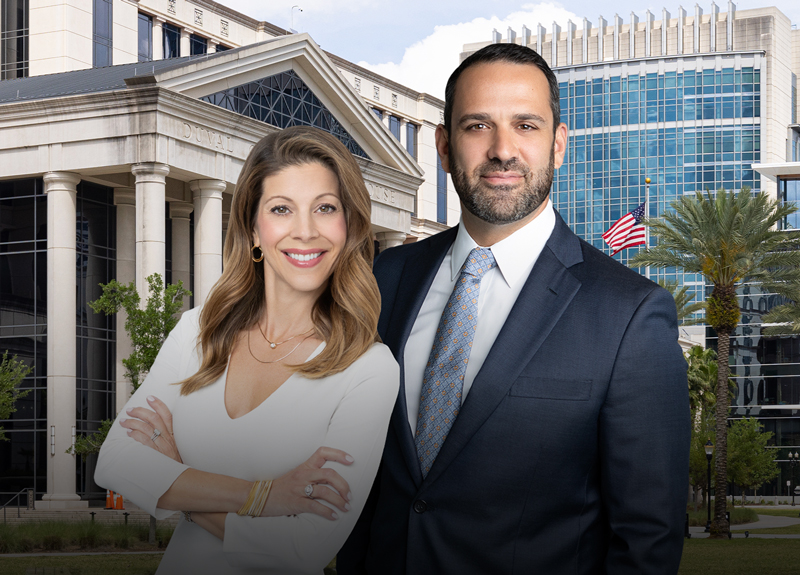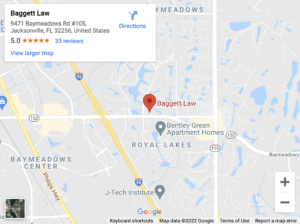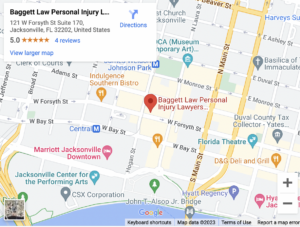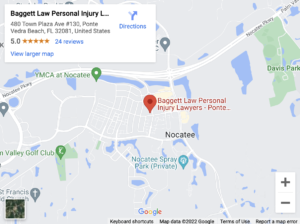
In a personal injury case, the defendant is the person, perhaps even a company, that the victim asserts is liable for the harm the victim suffered. This person may or may not have committed misconduct.
Using the term “defendant” typically suggests the victim has already filed a personal injury lawsuit. Some people use the term loosely, however, to include a potential defendant against whom the victim is asserting liability.
Damages
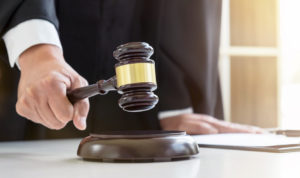
A defendant who loses a personal injury case will be found liable for damages — in other words, financial compensation. Many different types of financial compensation are possible depending on the specific facts of each individual case. Following is a listing of the most common types of compensation available in Florida courts.
Economic Damages
The term “economic damages” refers to anything you can easily count. Medical expenses are first on the list, followed by lost earnings. Economic damages can also include many other expenses, such as childcare expenses while you’re in the hospital.
Non-Economic Damages
Non-economic damages compensate the victim for intangible losses. First among these is pain and suffering damages, which often amount to far more than medical expenses. Other non-economic damages include loss of consortium, mental anguish, disfigurement, and emotional distress.
Punitive Damages
Most of the time, defendants do not have to pay punitive damages even if they lose. That’s because Florida courts are very reluctant to award punitive damages. A court might award punitive damages, however, if the defendant’s conduct is particularly outrageous and shocking in its depravity. For example, a doctor operating on a patient while intoxicated might qualify.
The Burden of Proof
The victim, not the defendant, normally shoulders the burden of proving the claim. More specifically, the burden of proof is a standard that tells the victim how much evidence they need to win their claim.
In criminal law, the prosecution must prove guilt beyond a reasonable doubt. This standard does not apply to personal injury law. Two other standards do apply, however. A description is below.
“A Preponderance of the Evidence”
A victim who files a personal injury claim meets the preponderance of the evidence standard if their evidence is enough to convince the judge or the jury that their version of events is more than 50% likely to be true. You could call the preponderance of the evidence standard the “more likely than not” standard. The preponderance of the evidence standard applies in almost any civil lawsuit, with narrow exceptions.
“Clear and Convincing Evidence”
The clear and convincing evidence standard is an elevated standard of proof. It is considerably more difficult to meet this standard than it is to meet the preponderance of the evidence standard.
In personal injury law, the clear and convincing evidence standard applies mainly when the victim seeks punitive damages in addition to ordinary compensatory damages. The victim meets the clear and convincing evidence standard when they submit enough admissible evidence to leave the judge or the jury with a firm conviction that the victim’s version of events is true.
This standard is still easier to meet than the “beyond a reasonable doubt” standard.
Affirmative Defenses
The defendant can counter the victim’s evidence by refuting it for the purpose of denying the victim a preponderance of the evidence. Alternatively, the defendant might take the initiative to assert an affirmative defense. They have the burden of proving their defense by a preponderance of the evidence. Following are some examples of common affirmative defenses that defendants commonly use.
Contributory Fault
Florida’s doctrine of modified comparative negligence allows defendants to assert that the victim was partly responsible for their own injuries. The court will assign a percentage of fault to each party, typically adding up to 100%. It will then deduct a percentage from the victim’s damages that corresponds to their percentage of fault. If the victim’s percentage reaches 51% or more, they cannot recover any damages under Florida law.
Failure To Mitigate Damages
The defendant can assert that they should not have to pay for damages the victim could have reasonably avoided. They might assert, for example, that they should not have to pay for head injuries sustained by a victim who rode a motorcycle without a helmet.
Assumption of the Risk
Assumption of the risk applies when the victim knew of the risk of the activity and voluntarily accepted it. For example, the defendant might submit a waiver of liability signed by the victim.
Expiration of the Statute of Limitations Deadline
Florida has recently changed its statute of limitations for most personal injury cases. Florida allows injured people either two or four years after the accident to file a personal injury lawsuit in most cases, depending on when the accident occurred. If they miss this deadline, their claim normally dies immediately. Narrow exceptions exist.
Sovereign Immunity
If the defendant is a government, under certain circumstances they can sometimes assert the doctrine of sovereign immunity to evade a personal injury lawsuit.
Self-Defense or Defense of Others
The defendant might assert that their alleged misconduct was justified by the need to defend themselves or others.
Third-Party Liability
The defendant might assert that a third party (not a party to the lawsuit) was responsible for the victim’s injuries. A car accident defendant, for example, might assert that a jaywalking pedestrian caused the accident.
Defendants and Their Insurance Companies Are Notoriously Stingy, but a Jacksonville Personal Injury Lawyer Can Help
In all likelihood, you are going to need to place immense pressure on a defendant to obtain either a trial judgment or a generous settlement. If any significant amount of money is at stake, hiring a Jacksonville personal injury lawyer is a near necessity. Contact our experienced attorneys at Baggett Law Personal Injury Lawyers by dialing (904) 396-1100.

